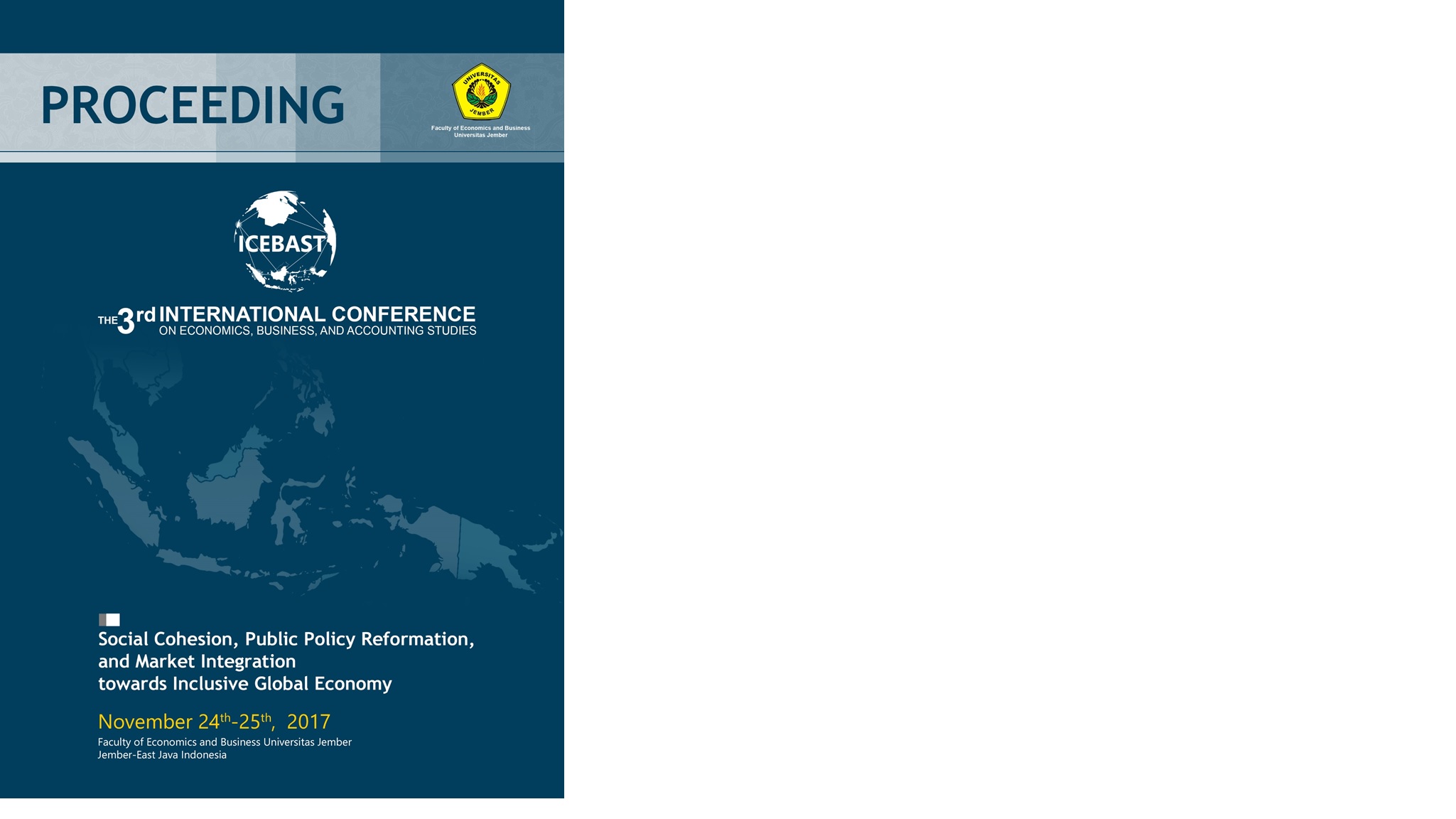THE ANALYSIS OF LOCAL GOVERNMENT EXPENDITURE EFFICIENCY AND ITS IMPACT ON ECONOMIC GROWTH IN INDONESIA
Abstract
The instrument of decentralization in Indonesia is expected to be able to improve efficiency of public expenditure and further drive economic growth in the regions. However, regional economic growth after the decentralization is still lower than that of before the policy enactment in Indonesia. This raised question whether or not the public expenditure have been efficient after the decentralization and whether or not this efficiency makes positive influences on the economic growth. This research studies correlation between the public expenditure efficiency and the economic growth in East Java and Central Java. The object of this research is public expenditure regencies / cities in East Java and Central Java. The public expenditure in East Java consists of 29 regencies and 9 cities. The public expenditure in Central Java consists of 29 regencies and 6 cities. The data source is pooled data from 2011 to 2016. The analysis is divided into two stages. First, public expenditure efficiency is measured by using Stochastic Frontier Analysis (SFA) method. The selection of inputs and outputs in this research is based on public expenditures’ functions. In the second stage, regression analysis is conducted to examine the impacts of the public expenditures’ efficiency scores and other determinants on the regional economic growth. The research result shows that, in East Java and Central Java, the public expenditure efficiency scores have positive and significant correlation with the economic growth in the region. Hence, the bigger the efficiency scores of the regional expenditure, the higher the economic growth in the region.


